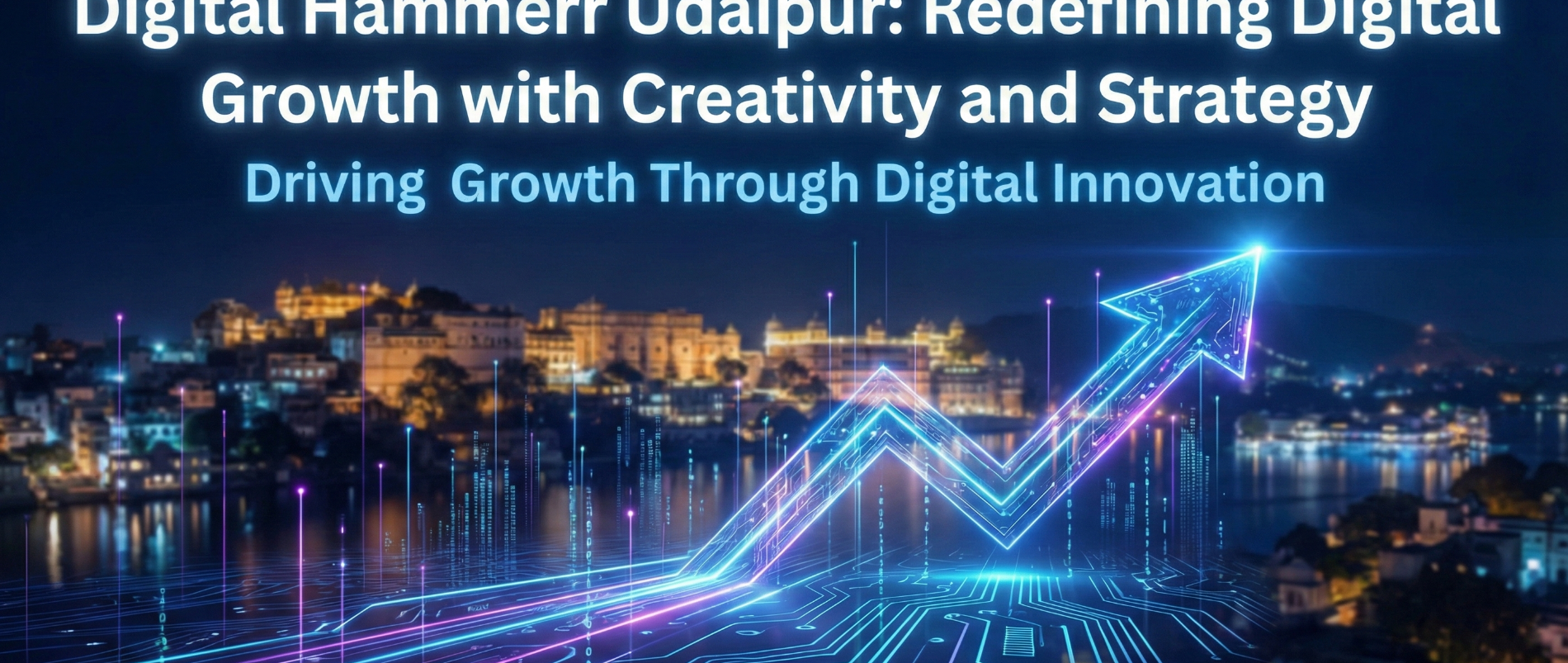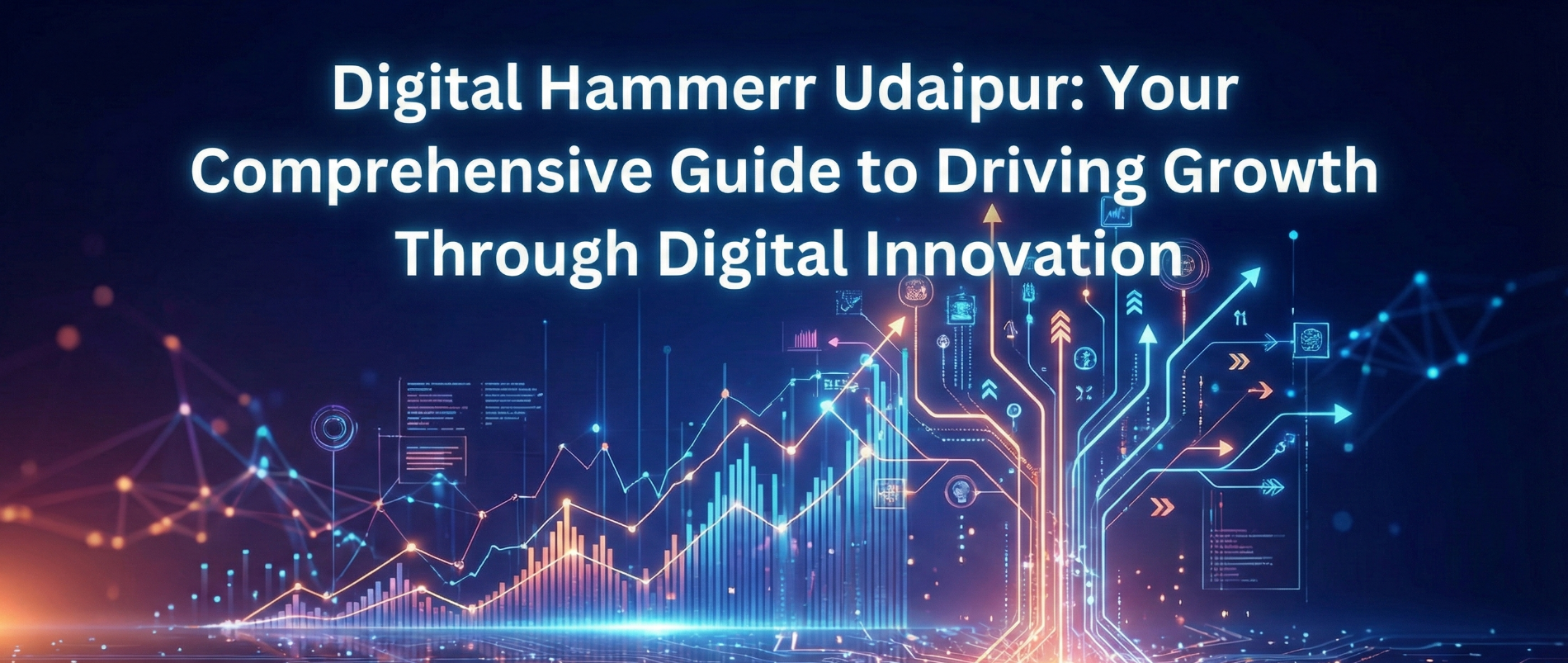Search Engine Optimization with AI: How Artificial Intelligence Is Revolutionizing Digital Visibility
Introduction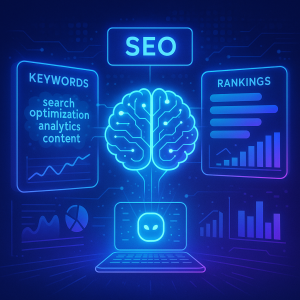
In today’s digital-first world, simply having a website is not enough — your business needs to be discoverable.
That’s where Search Engine Optimization (SEO) plays a critical role. SEO is the science of improving your website’s visibility on platforms like Google, ensuring your products or services reach the right audience.
Now, with the rise of Artificial Intelligence (AI), SEO has evolved into something even more powerful.
AI is revolutionizing the way marketers analyze data, identify trends, and create content. By automating time-consuming tasks and generating intelligent insights, AI helps businesses achieve higher rankings, more traffic, and better conversions — faster than ever before.
What Is AI in SEO?
AI in SEO refers to the use of technologies like machine learning (ML), natural language processing (NLP), and predictive analytics to optimize websites for search engines more intelligently.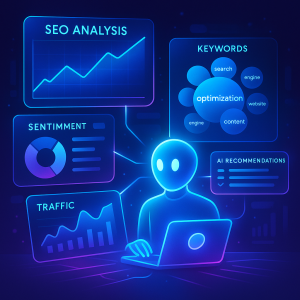
Unlike traditional SEO — which relied heavily on manual keyword research and trial-and-error — AI:
-
Understands user intent
-
Automates repetitive SEO tasks
-
Optimizes content for both search engines and human readers
In essence, AI transforms SEO from a guessing game into a data-driven, real-time optimization system.
Why Use AI for SEO?
1. Smarter Keyword Research
AI tools analyze billions of search queries to identify:
-
High-value keywords
-
Related search intent
-
Trending topics
This ensures your content targets the right audience at the right time.
2. Content Optimization
AI-driven tools recommend real-time improvements for:
-
Readability
-
Keyword density and placement
-
Content structure and tone
This helps your pages perform better in search results.
3. Voice Search Optimization
With the growth of voice assistants like Siri, Alexa, and Google Assistant, AI makes it easier to optimize your website for conversational queries and question-based searches.
4. SEO Automation
AI automates repetitive but essential tasks like:
-
Generating meta tags and descriptions
-
Adding image alt-text
-
Creating internal link suggestions
This saves time while maintaining SEO accuracy.
5. Predictive Analytics
AI analyzes patterns to predict future search trends and customer behavior, allowing businesses to stay ahead of algorithm updates and market shifts.
6. Enhanced User Experience (UX)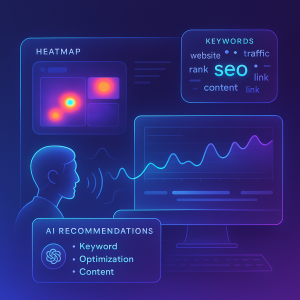
AI monitors user engagement metrics like:
-
Average time on page
-
Click-through rates (CTR)
-
Bounce rates
It then suggests design or content tweaks to improve user satisfaction — a key ranking factor for Google.
Key Applications of AI in SEO
🔹 AI-Powered Keyword Research
Tools such as SEMrush AI, Ahrefs AI, and SurferSEO use machine learning to identify:
-
Profitable keywords
-
Search intent
-
Long-tail opportunities
🔹 AI Content Generation & Optimization
Platforms like Jasper AI, Copy.ai, and ChatGPT create SEO-friendly content — blogs, meta descriptions, and headings — perfectly optimized for both readability and ranking.
🔹 SEO Automation
AI systems now handle:
-
Technical SEO audits
-
Broken link checks
-
Site health monitoring
This ensures ongoing optimization without manual intervention.
🔹 Voice Search & Conversational SEO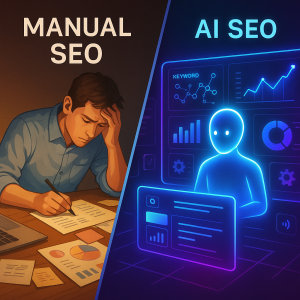
AI helps create content that answers natural-language queries, improving visibility in voice and featured snippet searches.
🔹 Competitor Analysis
AI scans competitor sites to detect:
-
Keyword gaps
-
Backlink opportunities
-
Content strategy insights
Businesses can then refine their SEO plans to outperform competitors.
🔹 Local SEO
AI improves local discoverability by:
-
Keeping Google My Business listings updated
-
Recommending keywords for “near me” searches
-
Tracking local ranking improvements
Benefits of Using AI in SEO
Faster Keyword Discovery — Access billions of data points instantly.
Higher Content Quality — AI ensures SEO and readability alignment.
Automation of Repetitive Tasks — Save time and reduce errors.
Improved Rankings & Traffic — Smarter optimization = better performance.
Data-Driven Decisions — Predictive analytics provide clarity and precision.
Personalized User Experiences — Engage users with dynamic, tailored content.
Scalable, Cost-Effective SEO — More impact, less effort, lower cost.
Real-World Examples of AI in SEO
eBay
Uses AI to analyze millions of product listings, improving visibility and relevance for search queries.
HubSpot
Integrates AI into its content marketing tools to help users create and optimize blogs automatically.
Spotify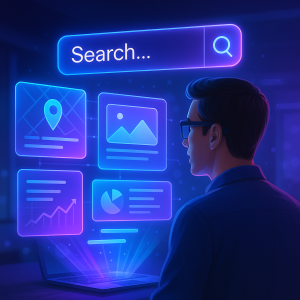
Employs AI-driven SEO and recommendation algorithms to deliver personalized user experiences and higher organic discovery.
The Future of SEO with AI
Hyper-Personalized Search Results
Search results will become unique for every user based on preferences, habits, and past behavior.
AI-Driven Visual & Video SEO
AI will optimize multimedia — images, videos, and interactive elements — for better search visibility.
Advanced Predictive SEO
AI will anticipate future keyword trends, helping brands publish content before competitors catch up.
Real-Time SEO Adjustments
AI will automatically tweak content for algorithm updates or sudden ranking shifts.
AI + AR/VR Search Experiences
As immersive technologies grow, AI will power 3D and AR-based search results for product and brand discovery.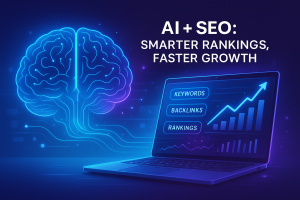
Conclusion
AI has fundamentally redefined SEO — turning it from a manual process into an intelligent, data-driven strategy.
From keyword research and content optimization to automation and predictive analytics, AI empowers businesses to improve rankings, attract more visitors, and deliver personalized experiences.
For modern brands, adopting AI-powered SEO is no longer optional — it’s essential for staying visible, competitive, and relevant in the ever-changing digital landscape.
The future of SEO is AI-powered — and it’s already here.




